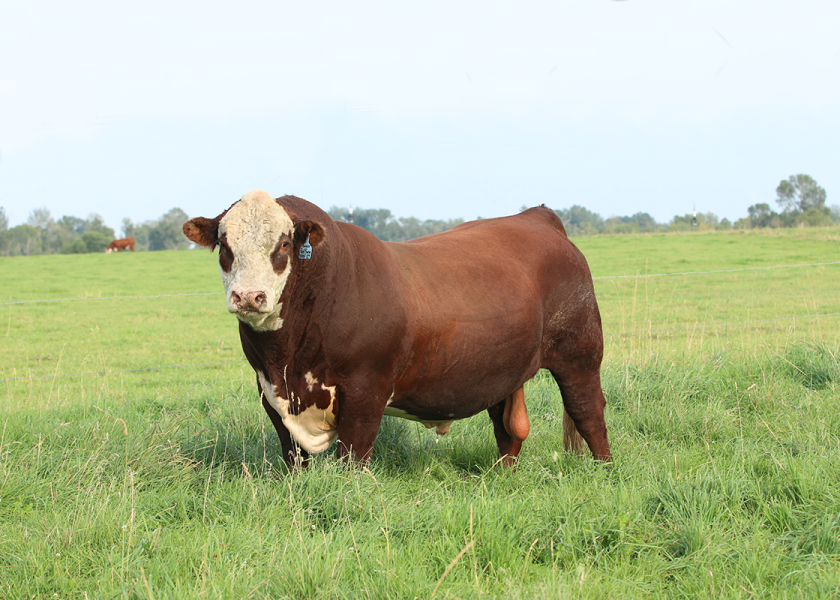Bull Management After the Breeding Season

In most spring calving herds, the breeding season begins in the spring or early summer. Maintaining a 60- to 90-day breeding season can be one of the most important management tools for cow-calf producers. A uniform, heavier, and more valuable calf crop is the reason that it’s time for spring calving herds to pull your bulls off cows, if you haven’t already. After breeding season bulls become a necessary evil or unwanted guest. As producers we would like to forget about them for the balance of the year. Fortunately, bulls do not require intense management during this period, thus, some planning will ensure they are ready to go when needed.
The goals for this period are simple:
- Keep feed costs at a practical minimum
- Keep the bulls in moderate condition
- Minimize the chance of injuries
- Continue growth of young bulls
- Make sure bulls are fertile and fit for the next breeding season turn out
To accomplish these goals producers should sort and appraise the bulls following the breeding season. Mature herd sires, in good condition, should be grouped together on pasture. The second group should include young bulls that still have a requirement for growth and bulls that are thin or need special care. Finally, producers should identify and cull the bulls that are old, crippled, inferior breeders, or have poor genetics. All bulls should have access to a vitamin and mineral mix, similar to what is been given to the cow herd at that time. The mature bulls in good condition need access to around 2% of their body weight in dry forage per day to maintain. Whereas the yearlings and thin bulls should have access to higher-quality pasture, hay, or silage to increase body condition. If you have the space and available feed, the thin conditioned cull bulls may take advantage of some compensatory weight gain.
As well, bulls should be de-wormed and vaccinated on the same herd health program as the cow herd. If a bull’s fertility is in question, it is a good idea to have Breeding Soundness Exams conducted after pulling bulls. This can be informative relative to management decisions and save the expense of prepping an infertile bull for an upcoming breeding season. When possible, hot wire traps are recommended for maintenance of bulls in the off season.
Just remember, it is not a sign of poor management or bad genetics if a bull loses body condition during the breeding season. The good bulls should be working hard! However, if they cannot gain body condition while they are not working and grazing moderate to high-quality forage, their female progeny may not be able to either.
By Parker Henley, Oklahoma State University Extension Specialist & Mark Z. Johnson, Oklahoma State University Extension Beef Cattle Breeding Specialist







